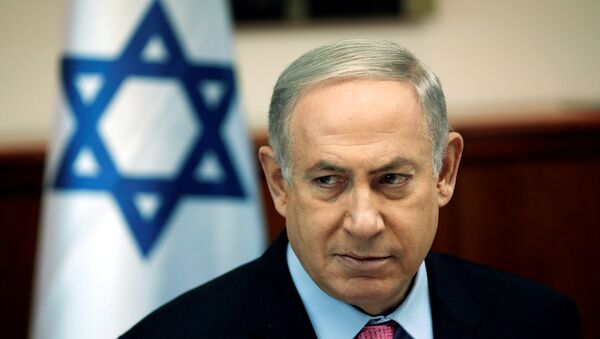“First of all, chemical weapons remain there. Despite the fact, that this is several percent [of the prewar Syrian arsenals], that is nevertheless dozens of tonnes … I promise you that if somebody has an idea to use weapons of mass destruction against us, he will expose himself to a great danger,” Netanyahu said.
On April 4, the National Coalition for Syrian Revolutionary and Opposition Forces blamed the Syrian government for the incident in Khan Sheikhoun, which allegedly involved the use of chemical weapons. Damascus denied any involvement in the incident and the Syrian army said it did not possess chemical weapons. The incident was used by the United States as pretext for a missile strike against a Syrian military airbase on April 7.
Later in April, Syrian President Bashar Assad told Sputnik that there was no chemical weapons attack in Idlib, adding that the reports about the incident were a false flag play, which was supposed to justify the US missile strike.
Damascus joined the Convention on the Prohibition of Chemical Weapons and agreed to destroy its stockpile under the OPCW oversight after the east Ghouta sarin gas incident in 2013. In January 2016, the OPCW announced that all chemical weapons in Syria had been destroyed.



